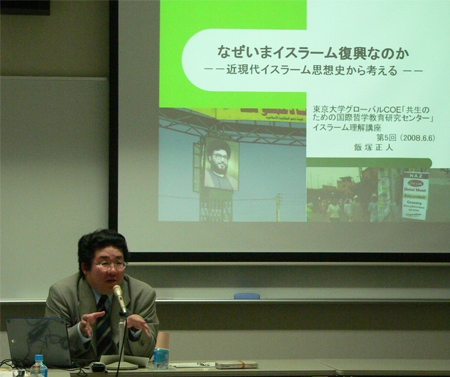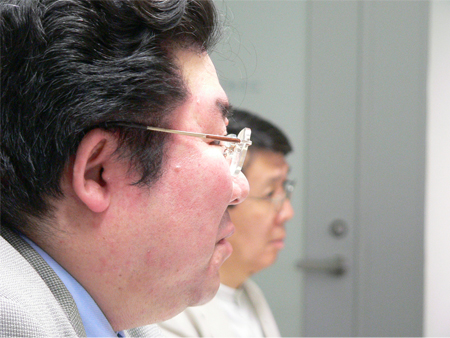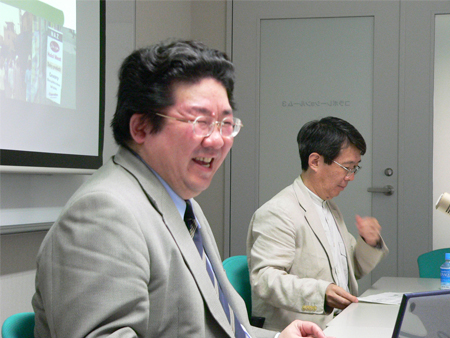Report: UTCP Lecture on Understanding Islam #5
On June 6, the fifth lecture on understanding Islam "Why Now the Revival of Islam? From the Perspective of Modern History of Islamic Thought" was held. The speaker was Masato Iizuka (Professor, Research Institute for Languages and Cultures of Asia and Africa, Tokyo University of Foreign Studies).

At the beginning Prof. Iizuka stated the conclusion of his lecture. It seems to us, the outside of Islam, that “the revival of Islam” is a movement whereby Islam intends to make a difference from Europe, But in view of Islamic thought and political situation, it is more appropriate to interpret the movement as a counteraction against the rapid Westernization or as one of the processes where people reconcile Islam with “Modernity”.
After that, Prof. Iizuka explained Islamic belief, sentences of Qur'an, the position of Sunni Islam―the largest denomination in Islam―and Islamic law. Furthermore he interpreted the nature of Islam. In Islamic belief, submission to the will of God promised not only glory in the future, but also prosperity in this world. Islam had been influential in the world until the 19th century. Muslims had virtually realized prosperity.
Because of the rise of Europe and the relative fall of Islam, however, the situation changed. Muslims sought reasons they were outdone by Europe. As a result, Islamic countries without exception had followed the Western separation of religion and state until the first half of 20th century. To support the policy, some Islamic thinkers argued that there was no contradiction between modern European civilization and Islamic thought. For example, they justified the parliamentary system in Islamic contexts.
After the time Muslims tried to reconcile Islam with Europe, there is “the revival of Islam” today. Tracing back to the transition, Prof. Iizuka focused on the veil which is regarded as the symbol of Islam (I should note that Prof. Iizuka has some reservation on seeing the veil as the symbol of Islam, because there is a room for doubts about seeing veils as a pure Islamic tradition). In aiming at the separation of religion and state based on a European model, there were various discussions about the veil and the status of women. On the one hand, Europeans criticized “Islamic backwardness.” On the other hand, Muslim thinkers claimed that Islam was equal to modern European civilization. But arguing against these two views, some contended that Muslims must adhere to Islamic traditional values that are different from the West.
In such a pluralistic situation, it is now difficult even for Muslims to answer the question “What is Islam?” In thinking about relations between Islam and Europe, Many people are taking a medium between the two poles above. The core of the movement “the revival of Islam” is precisely such people.

The movement of “the revival of Islam”, which we have seen since the 1970s, was partly because of Muslims’ confidence which was recovered to some extent after an oil crisis. It was also because of the use of religion for states. It becomes general that politics are told in Islamic contexts, and the separation of religion and state gets denied. As a result, there are continuous conflicts between governments that are self-proclaimed “Islamic states” and people who doubt them. This corresponds to the current situation in which the former educate people following Islamism, and thus they continue to produce the latter.
“The revival of Islam” appeared as a movement which reconsiders “the Islamic nature” of states or societies. “States” and “society” are modern notions. Thus, the movement can be interpreted as one of the long processes of adjusting Islam to Modernity.

After Prof. Iizuka’s lecture, we had meaningful discussions: whether today’s Islam itself is a production of “Modernity", how the idea of a nation state is related to Islamic societies in which only one-to-one contracts exist, etc.
Reported by Yoichi Isahaya






